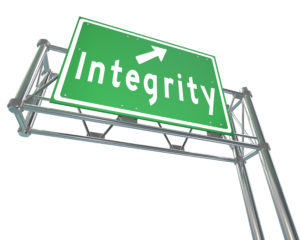Dan Ariely is a professor of psychology and behavioral economics at Duke University whose studies reveal valuable information about the human capacity for dishonesty. The Fraud Magazine article “Dichotomy of Dishonesty” includes an interview of Ariely by Dick Carozza, CFE. In this interview, Ariely demonstrates how an understanding of the human capacity for dishonesty can be used to prevent ordinary people from committing fraud. The following will summarize key takeaways from this interview.
Ariely explains that while we like to think of ourselves as decent, honest people, anyone can “deteriorate” into a pattern of dishonesty under the right circumstances. People tend to act dishonestly when doing so benefits them in some way. For example, a rushed employee may check off all the boxes on a daily maintenance inventory without actually inspecting all equipment. Perhaps their manager even suggests they do so. After all, the checklist is completed every day. How much could change in one day?
Unfortunately, dishonesty is an escalating behavior. Once individuals become comfortable lying about small matters, they are more likely to tell bigger lies. This truth should shape the role of a fraud examiner. Ariely explains that fraud examiners should expand their role to look for the early stages of people acting unethically. He states, “We could wait until people become immoral in some way, or we could look at the system early on and try to prevent it.” The truth is that fraudsters are not born as fraudsters. A series of personal decisions and environmental factors lead to ordinary people committing fraud. Discouraging even the smallest act of dishonesty in the workplace might just prevent someone going down a “slippery slope.” The knowledge of an available employee hotline where others can report unethical behavior can be a powerful deterrent.
Ariely goes on to explain what he calls the “what-the-hell effect.” The “what-the-hell effect” occurs after someone acts dishonestly for the first time. Prior to the dishonest act, they may believe that only bad people lie. Once they act dishonesty, they may feel as if they joined the group of “bad” people and that there is no going back. They may begin to think to themselves, “What the hell, if I already did it once, I might as well do it again,” thus rationalizing a pattern of dishonesty. In order to counteract the “what-the-hell effect,” people must be given the chance to drop the “bad person” label and to start fresh. Ariely suggests implementing practices such as annual honesty pledges to help employees recommit to doing the right thing.
Finally, Ariely discusses Robin Hood syndrome and how it causes people to rationalize unethical behavior. Robin Hood syndrome occurs when people believe that their unethical behavior will benefit someone other than themselves. Ariely states, “When people cheat for a group of people that they like, they cheat more. We can often justify cheating to a higher degree.” For example, a potential fraudster may not be able to rationalize stealing money for themselves, but they may be willing to do so to help a loved one in need.
While it is easy to categorize people as either good or bad, it is important to remember that everyone is capable of committing fraud and other unethical acts. The good news is that when we understand that people’s actions are shaped by the environment, we are able to create policies that prevent people from going down the slippery slope of dishonesty.
Want to know more about fighting fraud? See our prior article here.
Not a client of Red Flag Reporting’s hotline services? As a leading hotline provider, contact us to learn how our hotline services can protect your organization and your people.
